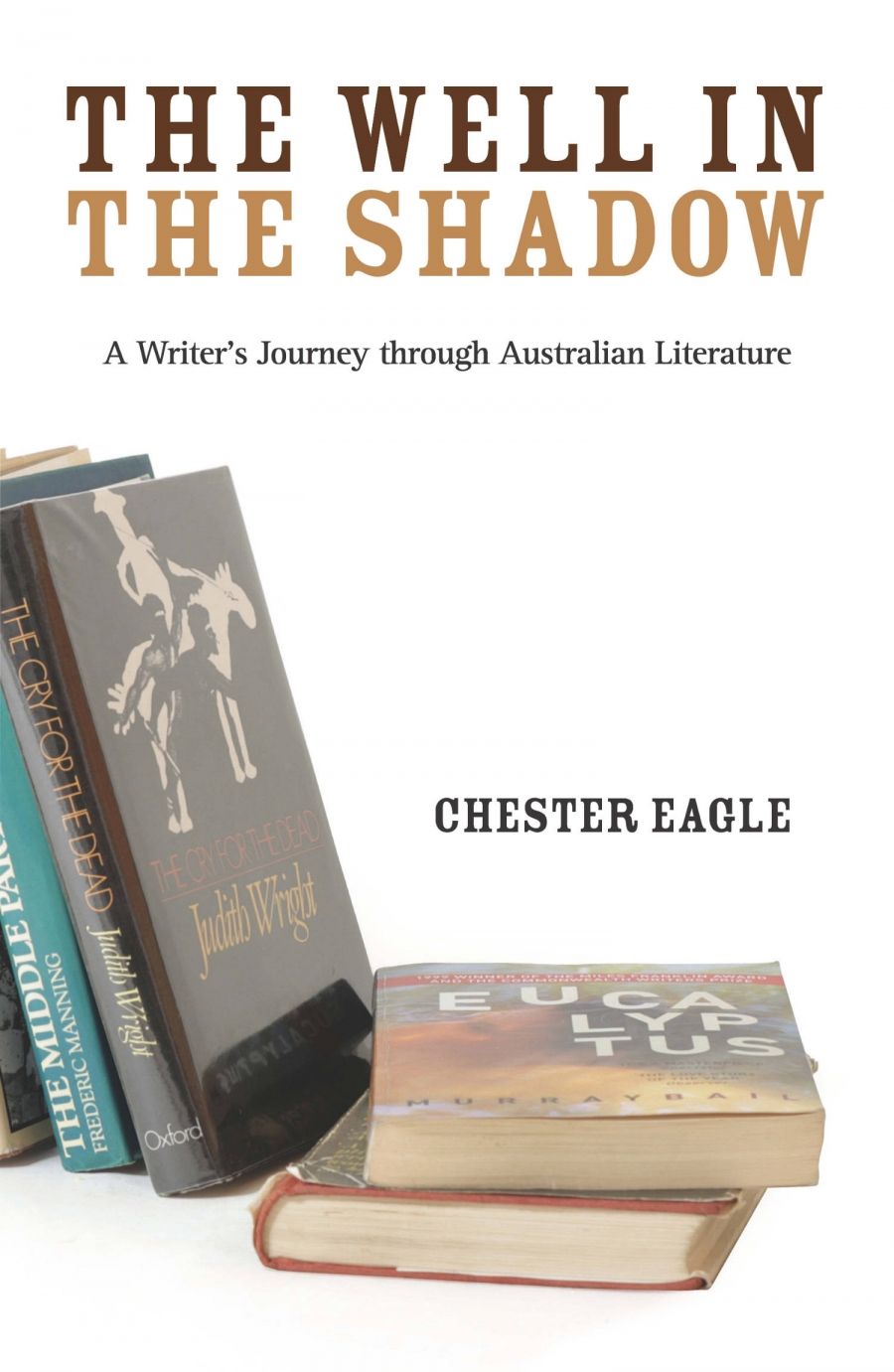
- Free Article: No
- Contents Category: Literary Studies
- Review Article: Yes
- Online Only: No
- Custom Highlight Text:
The Well in the Shadow, whose title is drawn from Katharine Susannah Prichard’s Coonardoo (1929), is an unconventional book, shaped entirely by Chester Eagle’s idiosyncratic responses to certain writers and their work. Eagle’s engagement with, and enthusiasm for, the texts he considers are undeniable. So too is his close knowledge of the books and writers discussed. The range of subjects is broad and reasonably inclusive, but I did wonder, given the book’s subtitle, about the absence of well-known writers such as Peter Carey, Tim Winton, David Malouf, and Christina Stead. Nonetheless, the choice is diverse.
- Book 1 Title: The Well in the Shadow
- Book 1 Subtitle: A writer’s journey through Australian literature
- Book 1 Biblio: Transit Lounge, $32.95 pb, 384 pp
By asking the question, ‘how can it be ethical to write about living people, especially those in one’s own family?’, Eagle focuses on a persistent dilemma for those engaged in life writing. As Janet Malcolm has so brilliantly pondered in The Silent Woman: Sylvia Plath and Ted Hughes (1994), how ethical is any kind of biographical writing? Having raised this important question, Eagle does not sustain any serious analysis of it; nor, on the other hand, does he identify the need for a certain forensic ruthlessness on the part of the biographer, regardless of whether the subject is alive or not.
In another essay, ‘Most Theatrical When Most Personal’, Eagle is caustic in his disapproval of Hal Porter’s theatricality in his autobiographies Watcher on the Cast-Iron Balcony (1963), The Paper Chase (1966), and The Extra (1975), and for the unkind representation of Porter’s wife. Eagle applauds his skill as a writer but objects to his use of artifice and to the appropriation of the writerly persona as ‘actor’. Writing is necessarily a form of artifice, and the myth of the self sits at the heart of autobiography: why, then, object to Hal Porter’s self-myth?
In the essay on Patrick White’s Voss (1957), entitled ‘A Desert Song, Or Is It?’ Eagle admonishes White for his ill-informed (or deliberately skewed?) representations of Aboriginality and, in particular, for the way in which their traditional practices are misrepresented:
This may strike you as trivial, but the death of Voss is not. Jackie, at the behest of men of whose tribe he is not a member, cuts the throat of Voss, then hacks his head off. Hacks the head off and throws it at the feet of those whose will – if that’s the word! – he is obeying. The death of Voss is thus ritualised in a way more appropriate to Macbeth than to the customs of our Aborigines. I cannot accept this dismemberment of the German. I think it happens because of an hysterical wish in the mind of Voss’s creator, who needed, required, something as shocking as this to happen.
Eagle’s challenge to the shibboleth that great art transcends the political is refreshing; he is ever willing to interrogate the ethics of ‘great books’. This aspect of the essays is intriguing and quite disarming, but the collection has its longueurs. Too often the plots are transcribed in detail, there is far too much quotation of slabs of text, and Eagle’s tone tends to be annoyingly chatty and demotic. The register is inappropriate, in a way that can seem intrusive and even patronising, especially when Eagle peppers his discussions with moral exhortations to the reader, or listener – the prose seems more like speech than writing. I did wonder about Eagle’s intended audience: some of the essays read like lectures to a Year Eleven literature class.
Eagle’s statement in the introduction that he writes as a ‘writer’, not as a ‘critic’, is disconcerting. By this he apparently means that he eschews a critical meta-language and instead claims privileged insight as an insider to the creative process, as one who has been ‘at the heart of the risky business of writing and imagining’. This is not only a Romantic and even élitist view of the writer’s craft, but it posits an absolute binary between critical writing and fiction that I do not accept. It also seems a case of special pleading to avoid criticism.
Chester Eagle is to be applauded for his sensitivity to questions of class, racial difference and gender in these essays, and for his knowledge of the texts he chooses to illustrate his lifelong journey as a reader, but it is a pity that he did not pitch his discussion a little higher.


Comments powered by CComment